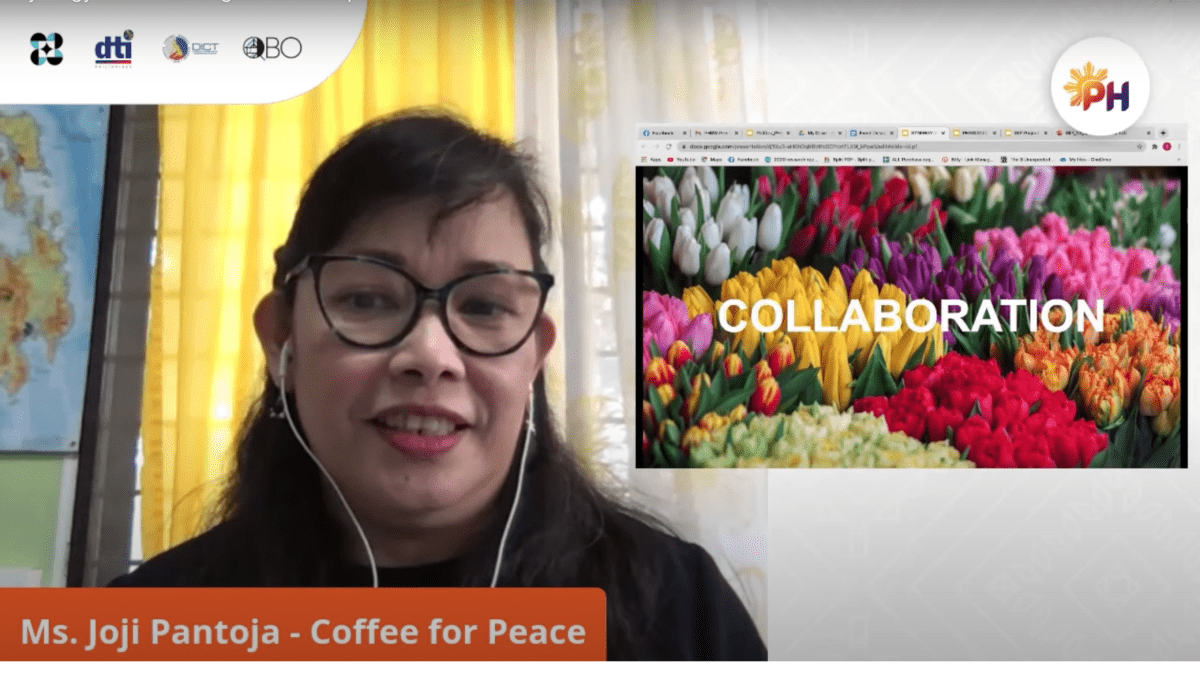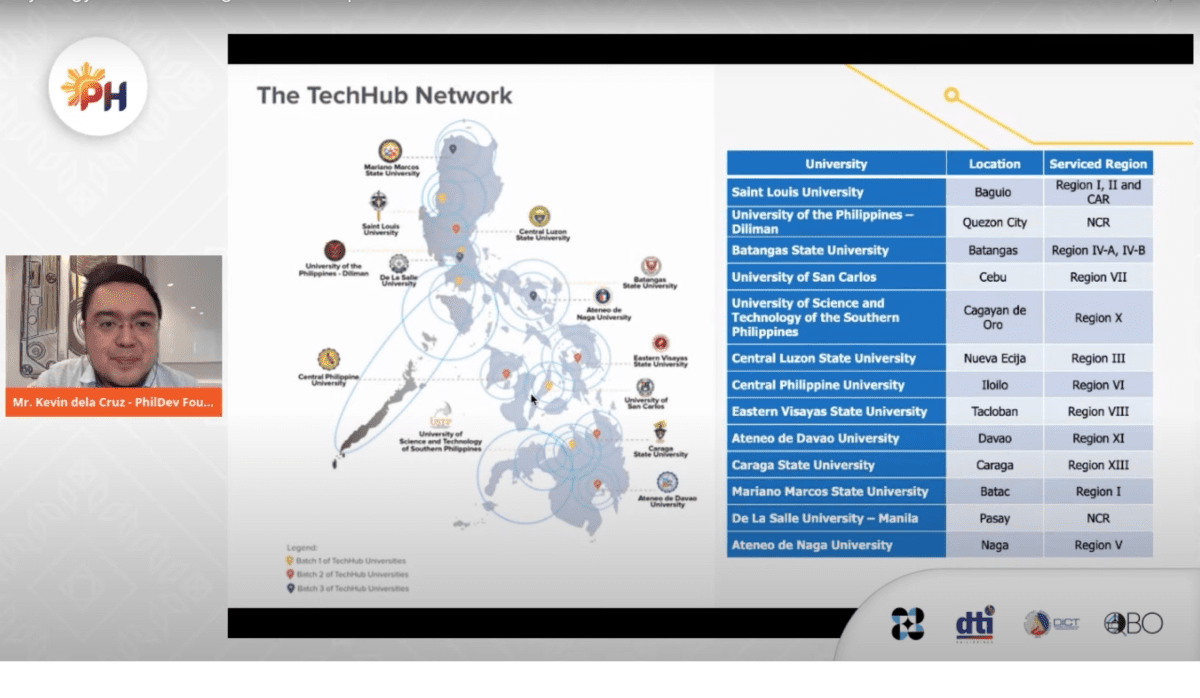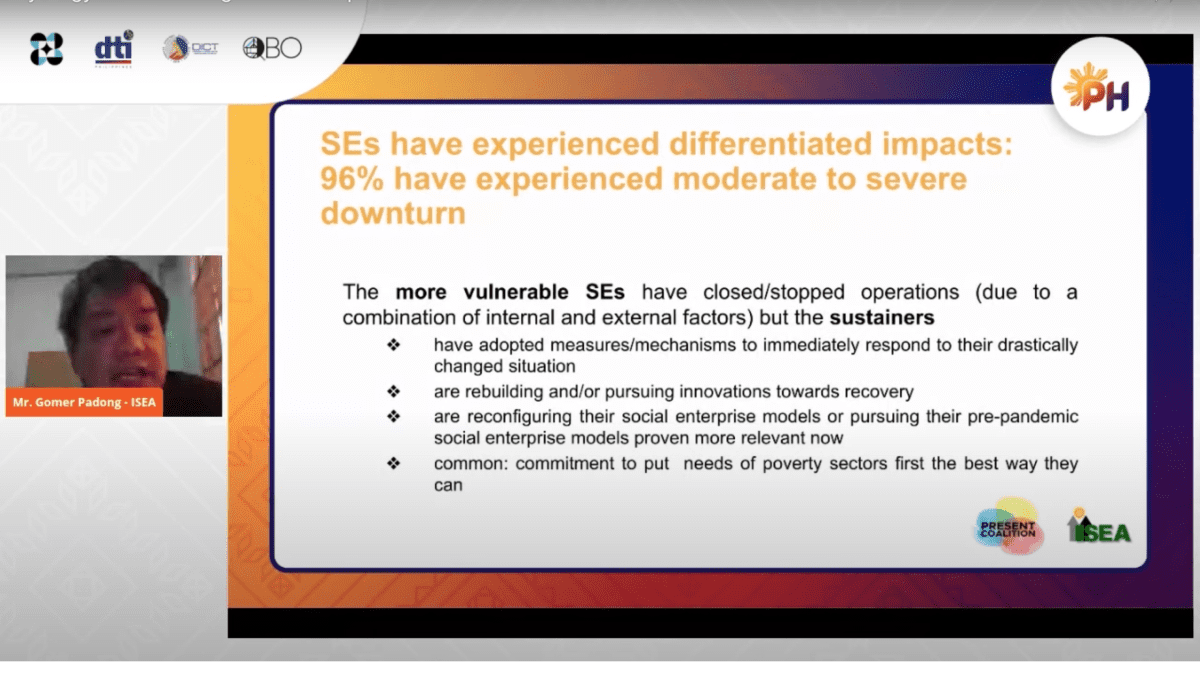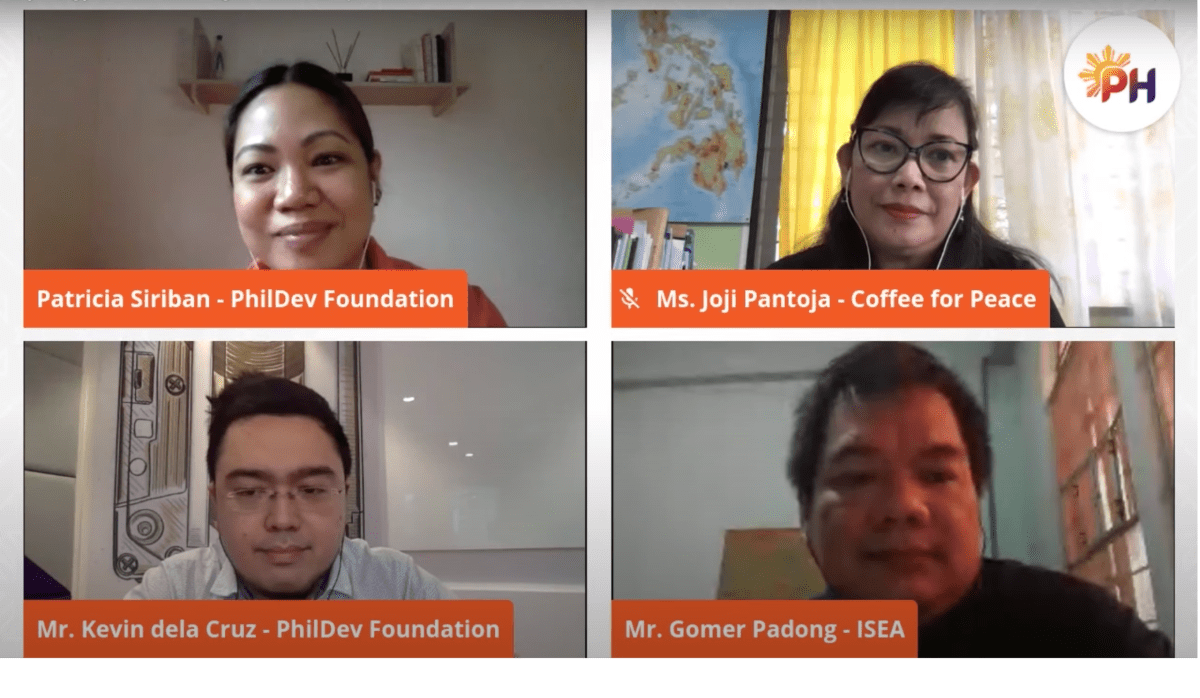by Samantha Sheane Chico
2020 is over and we are now at the time when we look back to the events of the year. How would we remember it?
Will we remember it as the time when we gave in to our wanderlust? No. We will remember it as the time when we explored the four corners of our house. Will we remember posting rants about the terrible traffic in the city? No. We will remember the time spending countless hours in endless zoom calls. Will we remember it as the time when we took the most wonderful food snaps for Instagram? No. We will remember it as the time when we tried to make our own banana bread.
The restrictions in movement, as well as the strict health and safety protocols reshaped the way we interact with the world, and inevitably, the way we consume. Nowadays, many, if not most, Filipinos turn to the internet and mobile apps to procure everything they need and want. With just a few clicks, we can have anything delivered into our doorstep. They said that this is how the new normal looks like: fast, easy, and convenient.
However, this picture of the “new normal” inadvertently left many of the marginalized Filipinos behind. Our changed consumption patterns forced two-thirds of businesses to close down (ADB, 2020) which led to the job loss for approximately 30 million Filipinos (SWS, 2020). During this unimaginable time, the lives of many of our fellow Filipinos are far from fast, easy, and convenient.
Unexpectedly, this time also opened opportunities for a budding breed of startups who took on the challenge of not only creating wealth, but also addressing the needs of vulnerable communities. They are social enterprises or SEs. SEs are businesses that employ market approaches to address perennial social problems. For many years, the SE sector in the Philippines has been steadily growing, but it is during this time of the pandemic when their role and contributions to nation-building and inclusive growth were put into the spotlight.
SEs were not spared from the negative effects of COVID-19 on Filipino businesses. In reality, countless SEs were forced to shut down due to changed consumption patterns among Filipino consumers. However, many are still able to sustain, and even thrive, in the changed socio-economic landscape. These sustainers were able to adapt by adopting innovative and creative strategies to embrace technology while still providing value to their partner communities. These SEs paved the way for the much-needed employment, and critical goods and services to Filipinos. They were also at the forefront of mobilizing resources and redirecting them to vulnerable communities. Despite the challenges, they promoted and fostered the ideals of inclusive and sustainable growth.
However, the business of “doing business with a heart” is not an easy task, and it needs a dynamic and enabling ecosystem that is conducive for the sector’s growth. It takes synergy borne out of the collaboration among the different stakeholders of the social enterprise sector.
This is what we wanted to explore through a panel discussion we hosted last 23 November 2020, for the 2020 Philippine Startup Week. Panelists Joji Pantoja of Coffee for Peace, our teammate Kevin Dela Cruz, and Gomer Padong of the Institute of Social Entrepreneurship in Asia (ISEA) discussed how collaboration can create synergy to amplify impact and accelerate inclusive and sustainable economic development in the country.
Creating Something Greater
First of all, why is collaboration important to the growth and effectiveness of SEs? Kevin Dela Cruz cited several reasons.
First, collaboration integrates the perspectives of various stakeholders. Each stakeholder brings unique insights and experience that can enrich and widen the perspectives on the contexts, needs, and opportunities of the SE sector. These stakeholders include the government, the academe, the private sector, other SEs and the grassroots communities. Through this convergence of perspectives, SEs may also address blind spots which can adversely affect their enterprises if left unchecked.

Joji Pantoja, in her sharing, mentioned that “collaboration is like a bouquet of flowers. Each flower has its own beauty, but if put together with others, it can contribute to make something greater — a beautiful bouquet.”
Just like in a bouquet, stakeholders of the SE sector can come together and create something greater. The government guides the overall welfare of the sector as it provides the policy and infrastructure support to enable SEs to pursue innovative and creative solutions to persistent social challenges. The academe is critical in the development of innovation and entrepreneurial spirit, as well as, provides evidence-based inputs to decision-making through its knowledge products and activities. The private sector, which includes investors, enablers, other businesses, and non-governmental organizations, and international organizations, provide support and resources in various forms. It could be monetary support, mentorship, and even peer-to-peer learning. These contribute to the collective capacity of the SE sector. Finally, the grassroots communities themselves can help validate the relevance of the SEs’ core business, but also participate in sustaining initiatives that can deliver inclusive development and impact.
Second, collaboration also paves the way for SEs to find partners who can reinforce their strengths and complement their weaknesses. This increases the collective power of SEs to create positive change in the society. However, forging relevant and lasting collaborations needs guidance. To find the right partners, an SE must know the three (3) Rs – Roles, Rules, and Relationship.
Joji shared that before entering into any collaborations, stakeholders must be clear on their roles in the partnership. They should be clear with what they can contribute coming into the partnership. Next, the stakeholders should be clear with the rules of collaboration. They should know the parameters of the partnership, the resources that can be shared and maximized given the context they are working in. Finally, stakeholders should be clear about their relationship as partners. Their interaction with each other should reinforce each other’s strengths and complement their weaknesses. As collaborators, stakeholders should adopt the “we” mentality and work with each other to achieve a single goal.
Lastly, collaboration can amplify the impact and help sustain initiatives because of the collaborators’ shared experience, insights, and resources. The work of one is supported and distributed by like-minded enterprises and organizations, reaching far more than an SE’s own community.
In the same vein, Gomer Padong emphasized the importance of having a unified vision to ensure an impactful collaboration. Having the same vision will dictate the roles, rules, and relationship of the collaboration. He also added that partnerships should not be forced. It is important for collaborators to be on the same page and have the intention, capability, and capacity to enter a partnership for mutual benefit.
Right Conditions for Growth
Ecosystems are complex networks of interrelated systems. This means that the health of the ecosystem is dependent on the inputs and outputs that are running through its networks.
Just like in any ecosystem, Filipino SEs cannot rely on themselves alone. They need quality inputs and the right environment for them to grow. This is where enabling organizations such as PhilDev and ISEA come in. These organizations contribute their expertise and resources to ensure that SEs have a dynamic and enabling ecosystem conducive for growth.

PhilDev is an innovation-driven, non-profit organization that accelerates national development through science and technology-based partnerships. As a big brother in the SE community, it forges meaningful partnerships among the government, private sector, and the academe in harnessing science and technology for sustainable and inclusive development in the Philippines.
We at Phildev, together with various stakeholders, participate in the value chain of startup generation by implementing initiatives on education, innovation, and entrepreneurship. It provides scholarships and capability-building activities, develops networks of experts from various sectors, and provides assistance to entrepreneurs to turn ideas to viable, scalable, and sustainable enterprises that can create more jobs and share wealth in the community.
One of our programs is PhilDev Labs, the Foundation’s arm that provides a platform for partners, innovators, and entrepreneurs to explore innovative solutions to address social and economic challenges in the Philippines. Last year, PhilDev Labs has implemented innovation challenges in partnership with Messy Bessy and the Financial Inclusion Lab to spark the development of innovative ideas that can make education and financial resources, and services accessible to marginalized groups.
Acknowledging the SEs’ unique position to drive inclusive growth in the country, we also collaborated with the United Nations Development Programme in the Philippines and the Australian Embassy in the Philippines to implement the Innovation for Social Impact Partnership or ISIP project. ISIP’s goal is to support promising technology-enabled social enterprises in the Philippines to be able to collectively contribute to the acceleration and achievement of the Sustainable Development Goals (SDGs). Through the project, we are able to support the growth of the SE sector by implementing activities in the dimensions of education, entrepreneurship, and policy.
The COVID-19 pandemic and the resulting changes in the socio-economic behavior of the Filipino consumers affected many of the ISIP SE cohorts. Recognizing this impact, the project implemented the Innovative Solutions Grant Facility (ISGF) which aimed to enable 20 SEs, including Coffee for Peace, to develop and implement innovations that will help their businesses navigate these changing times. The ISGF provides support through grant funding, technical services, learning sessions, and mentoring.
With customers unable to visit their café, Coffee for Peace built an e-commerce platform where their and their partner-farmers’ products can be sold online. They are also introducing a cashless payment system to their partner farming communities, so transactions remain contactless. These steps do not only address the challenges presented by the pandemic, but also introduce technologies and strategies that can make their partner communities become more adaptive to the fast-changing business environment.
Another supporting organization in the SE ecosystem is the Institute of Social Entrepreneurship in Asia or ISEA. ISEA is a learning and action network of social enterprises that aims to catalyze the knowledge production, capacity development, and movement-building for social entrepreneurship in Southeast Asia.
Aside from producing research, implementing courses, and conducting conferences, ISEA spearheads the lobbying of the Poverty Reduction Through Social Entrepreneurship (PRESENT) Bill in the Philippine national government which highlights the SEs’ role in achieving inclusive and sustainable development in the country. The bill seeks to provide priority support and incentives to SEs such as access to financial resources and services, capability-building, mainstreaming of SE concepts in all academic levels and research, and bridging of market gaps between consumers and SEs.
Enabling organizations such as PhilDev and ISEA ensure that support and assistance are provided to the SEs in the country. This way, they also contribute to the growth and stability of the sector.
How Might We: Enabling more synergies to create lasting impact
For the past years, the SE sector has been steadily growing, however, it was stunted by the COVID-19 pandemic and forced many SEs to close down. Nonetheless, they were not just able to pursue innovative strategies to stay afloat, but also provide critical products, services and employment to their partner communities. With the help of technology and social media, more consumers learned about social enterprises, and started supporting them. This momentum gives SEs more opportunities to help marginalized communities to build back better.
 However, stakeholders need to sustain this momentum. Gomer discussed that one of the biggest challenges of the SE sector is the fragmentation of the Philippines’ SE ecosystem. As an archipelagic country, SEs are budding everywhere. SEs also tend to grow in clusters (mostly in large cities) and is disjointed across clusters. Gomer added that the momentum SEs gained during this time is an opportunity to pull the fragmented ecosystem together and project their collective impact. Joji reiterated the importance of having the “we” mentality so that SEs can strengthen each other.
However, stakeholders need to sustain this momentum. Gomer discussed that one of the biggest challenges of the SE sector is the fragmentation of the Philippines’ SE ecosystem. As an archipelagic country, SEs are budding everywhere. SEs also tend to grow in clusters (mostly in large cities) and is disjointed across clusters. Gomer added that the momentum SEs gained during this time is an opportunity to pull the fragmented ecosystem together and project their collective impact. Joji reiterated the importance of having the “we” mentality so that SEs can strengthen each other.
Kevin, on the other hand, believes that the Philippines will benefit from collaboration among various industry sectors and the SE sector. However, Kevin discussed that the barriers to such a collaboration is the lack of awareness and understanding on how unique SEs are and on how their operations can contribute to a more inclusive development. If knowledge, experience and insights can be shared more freely across sectors, then silos can be broken down and collaborations can be forged to encourage the growth of all Filipinos enterprises.
Therefore, the three speakers agree that the approval of the PRESENT Bill will really help not only in establishing the identity of SEs and in providing critical support to SEs, but also in opening opportunities for collaborations across sectors.
Building Back Better
Social enterprises are uniquely positioned to contribute to nation-building and to the acceleration of inclusive and sustainable development in the Philippines. They are already able to establish their good work in distributing wealth and facilitating development in their respective communities. If there is something that the COVID-19 pandemic taught the Philippine SE sector, it is the importance of collaborating to create positive impact for Filipino communities.
After all these discussions, there is still one more stakeholder the SE ecosystem needs to collaborate with. One that makes the choices. One who consumes. That one is you.
You may not remember 2020 as the year when you went on adventures; but you may remember this year as the one when you made the choice to redefine the Filipino new normal. You have the opportunity to help define our new normal by simply building back, or by building back better.
What’s your choice?
